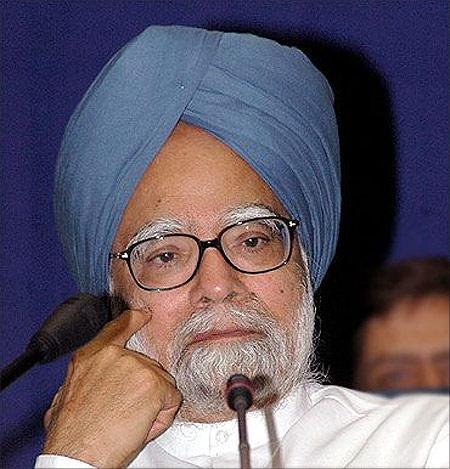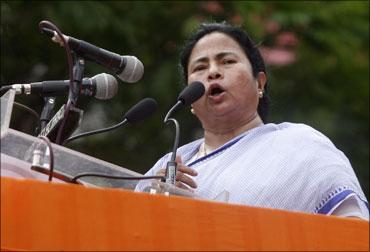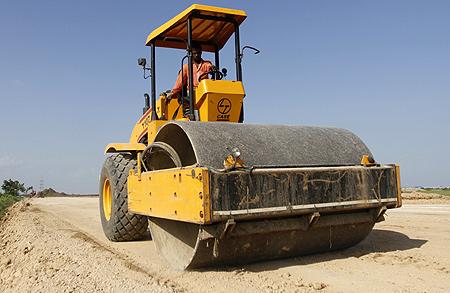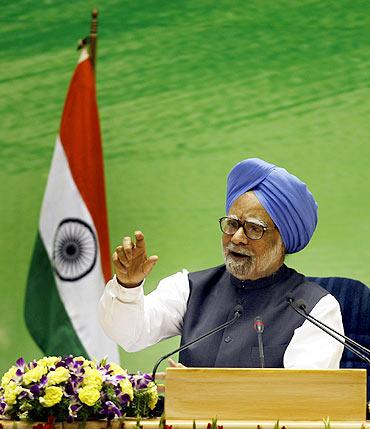
Against the backdrop of stiff opposition by UPA constituent Trinamool Congress to FDI in retail and rail fare hike, Prime Minister Manmohan Singh on Friday said the government will consult allies and take them on board whenever "tough" decisions are taken.
In his reaction to the General Budget presented in Parliament, he acknowledged that coalition "compulsions" would pose difficulties but made it clear that the government was committed to ensuring faster, sustainable and equitable growth at the rate of 8-9 per cent.
When asked in an interview to Doordarshan whether allies like Mamata Banerjee were on board in the government's reforms process, Singh said, "I think these are compulsions of managing the coalition.
...

"There will be difficulties. There have been difficulties but ultimately if the government is to govern, it must have a sustainable strategy of managing the economy. I sincerely hope when the time comes to take relevant decisions which are tough, we will consult all our allies and take them on board."
The statement assumes significance as it comes against the backdrop of stiff opposition by major UPA constituent Trinamool Congress to reform measures like allowing FDI in retail and raising railway passenger fares.
In view of Trinamool opposition, the proposal to allow 51 per cent FDI in multi-brand retail has been put on hold.
The Prime Minister said it was the "the biggest achievement" of the government that the growth rate of Indian economy had been protected despite the problems witnessed in rest of the world.
...

"We are still in the league of front runners in the growth movement," he said.
Singh pointed out that amidst the global financial crisis, the country's economic growth fell to 6.5 per cent in 2008-09. The growth returned to 8.4 per cent in 2010-11 but again slipped last year, he said.
"The challenge is to get it back on the path of 8-9 per cent and that's the task that this government has set for itself," he said.
Singh said the budget was an important instrument of macro economic policy and faster equitable, sustainable and more inclusive growth.
"We have, I think begun well and made use of modern technological devices to cut out wastage and leakages in the delivery mechanism in various public sector services," he said.
...

When pointed out that nutrient-based subsidies had been extended to phosphates and potassium and not urea which created huge demand in Rabi season, Singh said, "There is a general agreement that we should have a rethink on subsidy for all the three.
"But, it is deliberately felt that the time when international prices of urea were increasing, it would, I think, be wise to go slowly towards the nutrient-based subsidies and decontrolling urea as well. So I think it is a question of timing," he said.
At the same time, the Prime Minister said, "But there are, I think, compulsions which require that the government will have to take sensible decisions which may not be very popular."
Union Budget 2012-13: Complete coverage